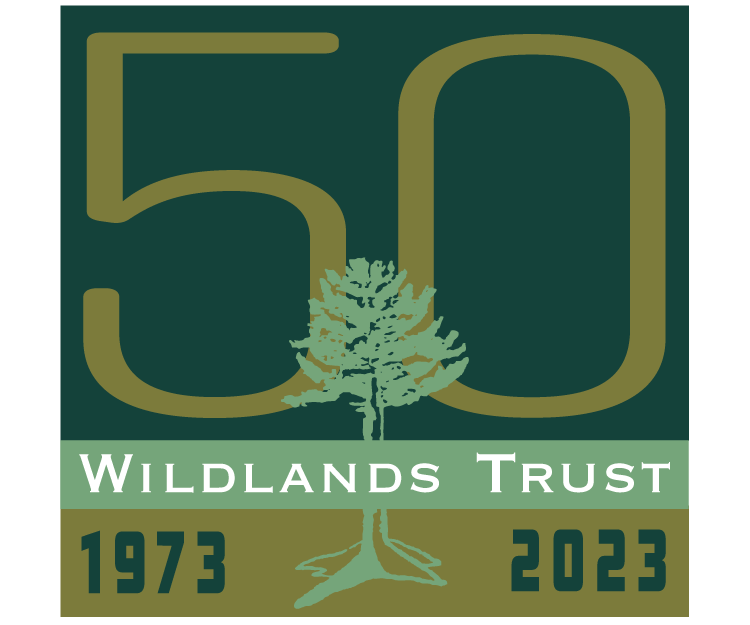By Kathleen Anderson
Wildlands Trust now protects over 7,000 acres scattered through 35 towns from Plymouth north to Milton, west to Swansea, and encompassing much of the vast Taunton River watershed, the largest in Southeastern Massachusetts and the second-largest in the Commonwealth.
Over the years I am sure records of mammals and birds observed on various of our properties have been noted but, to my knowledge, there has been no organized effort made to record the total number of species (i.e. the biodiversity) of our properties: Not only birds and mammals but the reptiles and amphibians, the fish, the insects, and the plants.
With the seemingly endless development of our “empty” land, refugia for native species becomes less and less. Hence, the importance of Wildlands Trust properties for biodiversity protection becomes greater and greater.
For instance, during my 66 years at Wolf Trap Hill Farm in Middleboro, I have documented the following:
35 of the 50, or three-quarters, of the land mammals known to occur in Massachusetts, including Moose!
193 of the 500, or two-fifths, of the Commonwealth’s bird species (which includes sea birds not to be expected to occur so far inland)
25 of the 46, or more than 50 percent, of the known reptiles and amphibians (“Herps”).
47 of the 103 butterflies (almost half of the state’s known species)
30 of the 106 dragonflies (“Odonata”) or about one-fifth of the known species
And I am still working to learn more about the dragonflies.
Just imagine the total Massachusetts species of wildlife whose existence continues secure on our properties, many species of which we are still unaware of, I am sure.
Postscript:
Middleborough resident Kathleen “Betty” Anderson is a true eminence in the conservation field. Among her many accomplishments, she founded the Manomet Bird Observatory (now known as the Manomet Center for Conservation Sciences), co-founded Wildlands Trust and served as a board member, and served on the Massachusetts Audubon Society Board of Directors and the Massachusetts Natural Heritage and Endangered Species Program Advisory Board. She also has made substantial contributions to land protection in her community through land donations and the grant of a conservation restriction to Wildlands Trust that collectively protect over 120 acres. We are privileged to have the opportunity to share her observations on biodiversity in Southeastern Massachusetts as seen through the prism of her beloved Wolf Trap Hill Farm. Betty is keeping her eyes peeled for the next Moose to visit her property.

